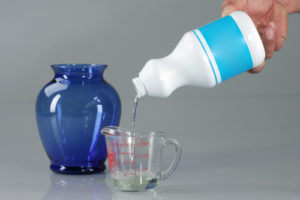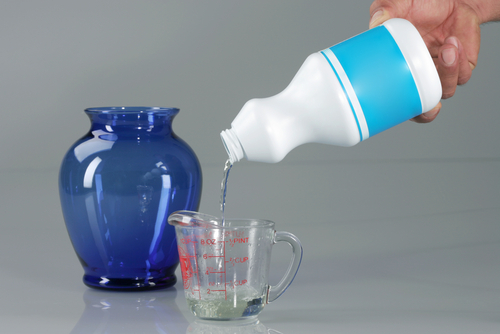When it comes to safe and effective disinfection, hiring a company that offers dependable cleaning services in Fitler Square, Philly, is an easy and efficient solution. But, if you prefer doing it yourself, bleach can be a powerful ally when used appropriately.
Although a common household product, bleach contains the strong chemical chlorine, which is why many people don’t reach for it very often. The truth is that it’s a good disinfectant, and if used properly, it can be helpful in many situations, but it must be used with caution.
Have a look at the following tips to find out how to use bleach to get best results and when to steer clear of the disinfectant.
What surfaces can you clean with bleach?
You can clean many things with bleach, if you dilute it properly. Here is how to make different solutions for different areas around the house:
Laundry

While many believe that bleach is only used for making clothes whiter, it can also be used for disinfection, especially when it comes to gym gear or baby clothes. Only, you’ll want to be sure the care instructions allow chlorinated bleach (often noted by an empty triangle).
If on the care tag you see a triangle with diagonal lines through it, you can instead add ⅓ cup of color-safe bleach to the washer for a deep clean of your clothes (though this type of bleach will not provide a full sanitization unless otherwise specified on the product or an extra hot sanitization cycle is run).
Unlike the regular variety, color-safe bleach cannot bleach your clothes. Look for the triangular symbols on clothing labels to know what type of bleach (if any) may be used. A triangle with an “x” drawn over it indicates no type of bleach should be used. Color-safe bleach is compatible with high-efficiency washing machines.
Kitchen
With all the food being processed around the kitchen, it’s necessary to keep it clean and germ-free. But as effective as this disinfectant may be, you may want to refrain from using bleach on household surfaces. This is especially important in homes that have delicate finishes such as wood floors, natural stone countertops, stainless steel fridges and sinks, etc. These and other surfaces could be at risk of damage when bleach is used.
Bathroom
When used with caution, a heavy-duty cleaning solution for your bathroom – ½ cup of bleach and 1 gallon of water – can be used for shower, toilet and bathroom tiles. But first, be sure to check that bleach is safe for your specific tile and other finishes (metal fixtures are especially sensitive to staining and damage by bleach). In general, when regular thorough cleaning is performed, less hazardous cleaning products are just as efficient at cleaning as bleach, without the risk of damage to surfaces.
You can also use bleach to freshen up a washable shower curtain liner by putting it in the washer and adding the amount of bleach appropriate for your size and type of machine. This will help remove and prevent mold on the curtain.
One note especially important for parents and caretakers of children is safety when keeping bath toys clean and mold/germ-free. Bleach can get into the porous material and insides of many children’s toys. Please take care to ensure toys are bleach-safe, colorfast and nonporous if you choose to clean with a dilute bleach solution and to rinse well; or you may consider safer non-toxic cleaning products on the market. What can you not clean with bleach?
There are certain situations where using bleach is not recommended, usually because it can damage the surface. Take a look at the following list of don’ts:
*Wooden surfaces. Wood is a porous material and bleach can’t get out of it sufficiently. It can easily lead to noticeable damage.
*Stainless steel and most metals. When exposed to bleach, metal surfaces become corroded due to oxidants found in bleach.
*Natural stone. Stone is also porous, and bleach can damage its surface.
*Food sanitizing. Food in commercial production is sanitized with bleach, but in everyday life, it’s complicated to mix the exact proportions, so it’s strongly advised to avoid it.
*Other chemicals. When bleach is mixed with other chemicals, it can produce lethal vapor or even an explosion.
Where to book dependable home cleaning services in Fitler Square, Philly, and the nearby areas?
 When you want to replace hours of cleaning and pondering over the right tools and supplies, with hours of doing more meaningful things like spending quality time with your family at the Pennsylvania Academy of the Fine Arts, reach out to EverGreen Maids!
When you want to replace hours of cleaning and pondering over the right tools and supplies, with hours of doing more meaningful things like spending quality time with your family at the Pennsylvania Academy of the Fine Arts, reach out to EverGreen Maids!
We are here to put years of our experience at your service. With the quality cleaning that we offer, your home will always be fresh and clean.
Book now!


Recent Comments